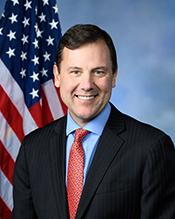H.R. 2512: Hot Foods Act of 2025
The bill titled the Hot Foods Act of 2025 aims to amend the Food and Nutrition Act of 2008. Its primary focus is to change what types of food items can be purchased using Supplemental Nutrition Assistance Program (SNAP) benefits. Here’s a breakdown of the proposed changes:
Key Provisions
- Inclusion of Hot Foods: The bill proposes to allow SNAP benefits to be used for purchasing hot foods or hot food products that are ready for immediate consumption. This change is significant because currently, such items are generally excluded from what can be bought with SNAP benefits.
- Clarification of Allowed Purchases: The language of the bill clarifies that alcohol and tobacco products will still be excluded from purchases with SNAP benefits.
- Sales Restrictions: Retailers who wish to participate in this program can sell hot foods or food products, but they cannot exceed 50% of their total gross sales in this category. This aims to prevent establishments primarily operating as hot food vendors from exploiting the program.
Impact on Retailers
With the proposed changes, eligible retailers will be able to sell more food options to SNAP beneficiaries, potentially increasing their sales from this demographic. Retailers specializing in cooked or prepared foods, such as delis, restaurants, and convenience stores, may see a positive impact as they can accept SNAP for hot food items.
Objective of the Bill
The overall goal of the Hot Foods Act is to expand the food options available to recipients of SNAP benefits, thereby enhancing their access to nutritious food, especially those who may rely on convenient meals due to time or resource constraints.
Implementation Considerations
The bill would require policy changes in the SNAP system, including updates to guidelines available for participants and retailers regarding acceptable foods. There may also be operational changes at the retailer level to ensure compliance with the new rules.
Relevant Companies
- MDLZ (Mondelez International): This company offers a range of snack foods that could benefit from increased consumer access. Changes in SNAP could lead to higher sales of their products in stores that sell hot food items.
- DIS (The Walt Disney Company): Disney operates a range of food services across its parks and resorts. If hot food purchases become more common within SNAP, it could impact revenue from food sales, especially in locations serving quick meals.
- CPB (Campbell Soup Company): As a provider of prepared food products, Campbell Soup may experience a sales increase if hot foods become more regularly purchased through SNAP benefits.
This is an AI-generated summary of the bill text. There may be mistakes.
Sponsors
81 bill sponsors
-
TrackGrace Meng

Sponsor
-
TrackJake Auchincloss

Co-Sponsor
-
TrackBecca Balint

Co-Sponsor
-
TrackNanette Diaz Barragán

Co-Sponsor
-
TrackWesley Bell

Co-Sponsor
-
TrackSuzanne Bonamici

Co-Sponsor
-
TrackJulia Brownley
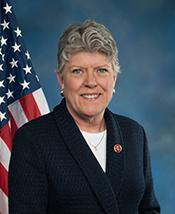
Co-Sponsor
-
TrackSalud O. Carbajal

Co-Sponsor
-
TrackAndré Carson

Co-Sponsor
-
TrackTroy A. Carter

Co-Sponsor
-
TrackKathy Castor

Co-Sponsor
-
TrackSheila Cherfilus-McCormick

Co-Sponsor
-
TrackJudy Chu

Co-Sponsor
-
TrackYvette D. Clarke

Co-Sponsor
-
TrackSteve Cohen

Co-Sponsor
-
TrackJim Costa

Co-Sponsor
-
TrackDonald G. Davis

Co-Sponsor
-
TrackDebbie Dingell

Co-Sponsor
-
TrackAdriano Espaillat
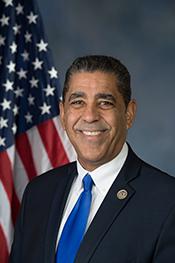
Co-Sponsor
-
TrackDwight Evans

Co-Sponsor
-
TrackGabe Evans

Co-Sponsor
-
TrackBrian K. Fitzpatrick

Co-Sponsor
-
TrackLizzie Fletcher

Co-Sponsor
-
TrackMaxwell Frost

Co-Sponsor
-
TrackJohn Garamendi

Co-Sponsor
-
TrackAndrew R. Garbarino

Co-Sponsor
-
TrackRobert Garcia

Co-Sponsor
-
TrackDaniel S. Goldman

Co-Sponsor
-
TrackJimmy Gomez

Co-Sponsor
-
TrackJosh Gottheimer

Co-Sponsor
-
TrackJosh Harder

Co-Sponsor
-
TrackJahana Hayes

Co-Sponsor
-
TrackJared Huffman

Co-Sponsor
-
TrackSara Jacobs

Co-Sponsor
-
TrackJulie Johnson

Co-Sponsor
-
TrackHenry C. "Hank" Johnson, Jr.

Co-Sponsor
-
TrackWilliam R. Keating

Co-Sponsor
-
TrackRobin L. Kelly

Co-Sponsor
-
TrackRo Khanna

Co-Sponsor
-
TrackRaja Krishnamoorthi

Co-Sponsor
-
TrackNick LaLota
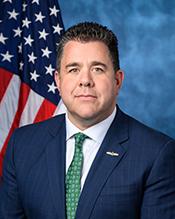
Co-Sponsor
-
TrackGreg Landsman
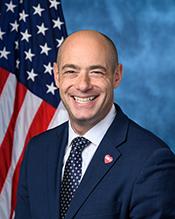
Co-Sponsor
-
TrackGeorge Latimer

Co-Sponsor
-
TrackMichael Lawler

Co-Sponsor
-
TrackTeresa Leger Fernandez

Co-Sponsor
-
TrackStephen F. Lynch

Co-Sponsor
-
TrackNicole Malliotakis

Co-Sponsor
-
TrackMorgan McGarvey

Co-Sponsor
-
TrackJames P. McGovern

Co-Sponsor
-
TrackLaMonica McIver

Co-Sponsor
-
TrackDave Min

Co-Sponsor
-
TrackJoseph D. Morelle

Co-Sponsor
-
TrackJerrold Nadler

Co-Sponsor
-
TrackEleanor Holmes Norton

Co-Sponsor
-
TrackZachary Nunn

Co-Sponsor
-
TrackAlexandria Ocasio-Cortez

Co-Sponsor
-
TrackBrittany Pettersen
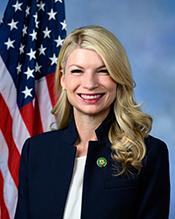
Co-Sponsor
-
TrackChellie Pingree

Co-Sponsor
-
TrackMark Pocan
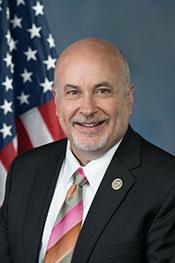
Co-Sponsor
-
TrackDelia C. Ramirez

Co-Sponsor
-
TrackJosh Riley

Co-Sponsor
-
TrackAndrea Salinas

Co-Sponsor
-
TrackTerri A. Sewell

Co-Sponsor
-
TrackAdam Smith

Co-Sponsor
-
TrackEric Sorensen

Co-Sponsor
-
TrackThomas R. Suozzi

Co-Sponsor
-
TrackLinda T. Sánchez

Co-Sponsor
-
TrackMark Takano
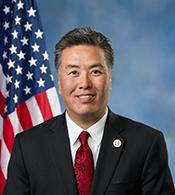
Co-Sponsor
-
TrackShri Thanedar

Co-Sponsor
-
TrackDina Titus

Co-Sponsor
-
TrackRashida Tlaib

Co-Sponsor
-
TrackJill N. Tokuda

Co-Sponsor
-
TrackPaul Tonko

Co-Sponsor
-
TrackRitchie Torres

Co-Sponsor
-
TrackDerek Tran

Co-Sponsor
-
TrackJefferson Van Drew

Co-Sponsor
-
TrackDerrick Van Orden

Co-Sponsor
-
TrackJuan Vargas
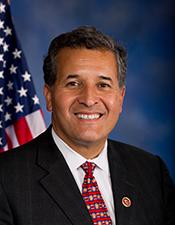
Co-Sponsor
-
TrackGabe Vasquez

Co-Sponsor
-
TrackNydia M. Velázquez

Co-Sponsor
-
TrackBonnie Watson Coleman

Co-Sponsor
Actions
3 actions
| Date | Action |
|---|---|
| Apr. 18, 2025 | Referred to the Subcommittee on Nutrition and Foreign Agriculture. |
| Mar. 31, 2025 | Introduced in House |
| Mar. 31, 2025 | Referred to the House Committee on Agriculture. |
Corporate Lobbying
0 companies lobbying
None found.
* Note that there can be significant delays in lobbying disclosures, and our data may be incomplete.







